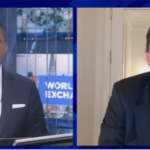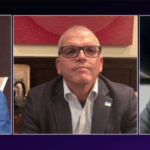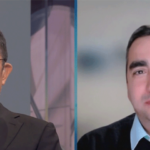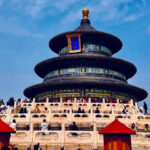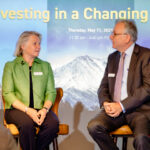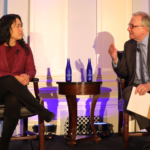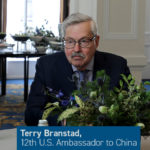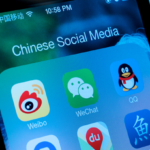Dr. Henry Kissinger Shares His Thoughts on China, Russia, & Ukraine
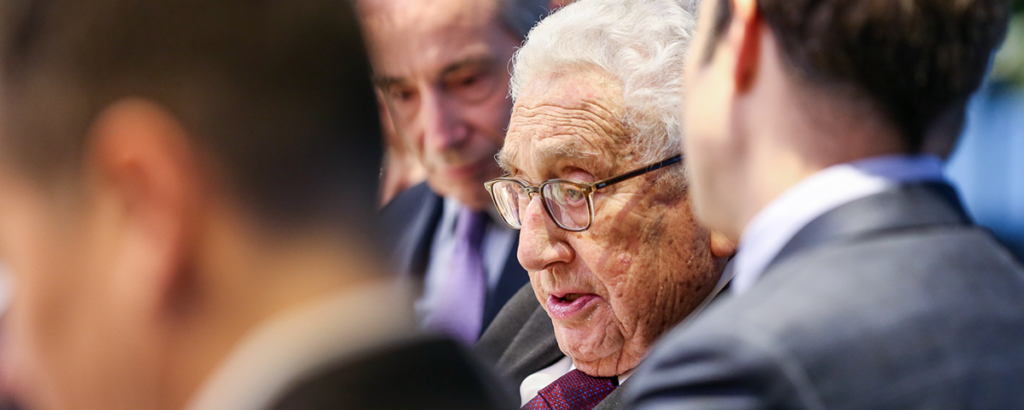
KraneShares recently participated in a private discussion with former US Secretary of State Dr. Henry Kissinger at the Metropolitan Club in New York City. We hosted a private lunch briefing with Dr. Kissinger in 2019. Given the significant developments over the past four years, we were eager to learn how Dr. Kissinger's views have evolved in 2022.
Dr. Kissinger was a key influence in shaping U.S. foreign policy with China under President Richard Nixon. He continues to share valuable insight on the relationship between the two countries against an increasingly complex political backdrop. The conference was centered on the recent Russian invasion of Ukraine and the potential political and economic consequences affecting China, Russia, and the U.S. going forward.
The main takeaways from Dr. Kissinger’s remarks include:
- The dynamics between China, Russia, and the U.S. remain fragile and unpredictable going forward as Russia engages in conflict with Ukraine.
- China likely did not foresee the invasion when entering into an alliance “without limits” with Russia. Despite refusing to condemn the war, China is expected to avoid entering a contentious position with Europe due to heavy trade with the continent. China will be inclined to depart from its partnership with Russia as a result.
- China and the U.S. continue to lack the high-level diplomatic communication that is crucial to avoiding conflict and developing a strategic relationship for the future.
Dr. Kissinger stated that Ukraine should seek a return to the status quo, i.e., re-establishing the conditions that held before the war with Russia. He suggested that Ukraine will likely push further and demand to restore its border to include Crimea and the parts of the Donbas region that have been occupied by Russia. This scenario would be seen as a clear defeat for Vladimir Putin, shifting the dynamic of the war from a defense of Ukrainian territory to an encroachment on Russia. This may also risk escalation by Putin, but Dr. Kissinger believes it is unlikely that Russia would resort to the use of nuclear weapons.
Immediately prior to Russia’s invasion of Ukraine, China and Russia agreed to a “no limits” partnership with the stated purpose of countering U.S. influence. Dr. Kissinger believes that, at the time the agreement was announced China was unaware of Russia’s plans to invade. He predicts that China will begin to depart from this alliance due to the potential sanctions from the West. Furthermore, significant trade between China, Europe, and the US prevents the major economic power from siding with Russia. As a result, Russia and China presently do not share the same objectives.
The original concept of the “no limits” alliance was to join the two countries in opposition to what they both see as the U.S. interfering in their domestic affairs. Russia’s invasion of Ukraine has created uncertainty in its alliance with China, leaving room for new negotiations in the near future.
Considering the level of economic coupling between China and the U.S., it is crucial that the two countries resolve their differences and forge a partnership going forward. Communication between China and the U.S. drastically shifted under the Trump administration as Donald Trump established China as an adversary and ignited an economic war. This set the tone for Biden’s presidency which continues to see China in the light Trump cast.
Dr. Kissinger looked back to the origins of contact between China and the U.S. The two powers forged their relationship on the grounds of a common strategic interest: containing the then Soviet Union. This led to cooperation between the countries for many years following the Cold War. Since then, China has rapidly developed, creating a unique situation in which the U.S. faces a country with nearly equivalent strategic capability.
Dr. Kissinger believes it would benefit both countries now to take the basic approach observed during the Nixon administration in which communication with China focuses on common strategic interests without attempting to alter the domestic structure of either nation. Continuing to engage with China in the manner that has been may lead to a long and potentially dangerous conflict. Dr. Kissinger noted that this also brings forth an important decision for China as this conflict would be substantially damaging for the Chinese economy. He believes China is not prepared for this conflict with the U.S. because of its own internal objectives, which include containing COVID and jump-starting domestic consumption. The issue thus resides in the lack of high-level diplomatic communication between China and the U.S. The U.S. must be active in limiting and possibly reducing the confrontational aspect of its relationship with China.
Dr. Kissinger suggested a good principle to keep in mind: when dealing with two adversaries, it is best for them to be greater enemies with each other than they are with you. The U.S. should place itself closer to China than China is with Russia. However, he believes once the conflict in Ukraine is settled politically, the U.S. should not expect the alliance between China and Russia to be dissolved. The more China’s objectives diverge from Russia’s, the more they begin to align with the U.S. The U.S. should seize the opportunity presented by China’s frustration with Russia to encourage China to work more constructively with the U.S. going forward.
Kissinger believes that China has consistently honored the position of mutual respect for sovereignty that is in the written principles of its foreign policy. Russia’s invasion of Ukraine put a wedge in the partnership between Russia and China as it would be against China’s strategic interests and operating principles to support Russia’s invasion. This is evidenced by China’s refusal to condone Russia’s actions. In the wake of their “no limits” alliance, this conflict opens an opportunity for the U.S. to strengthen foreign relations with China going forward. If the two countries can use this opportunity to develop high-level diplomatic communication, we could see an improvement in U.S.-China relations in the future.


